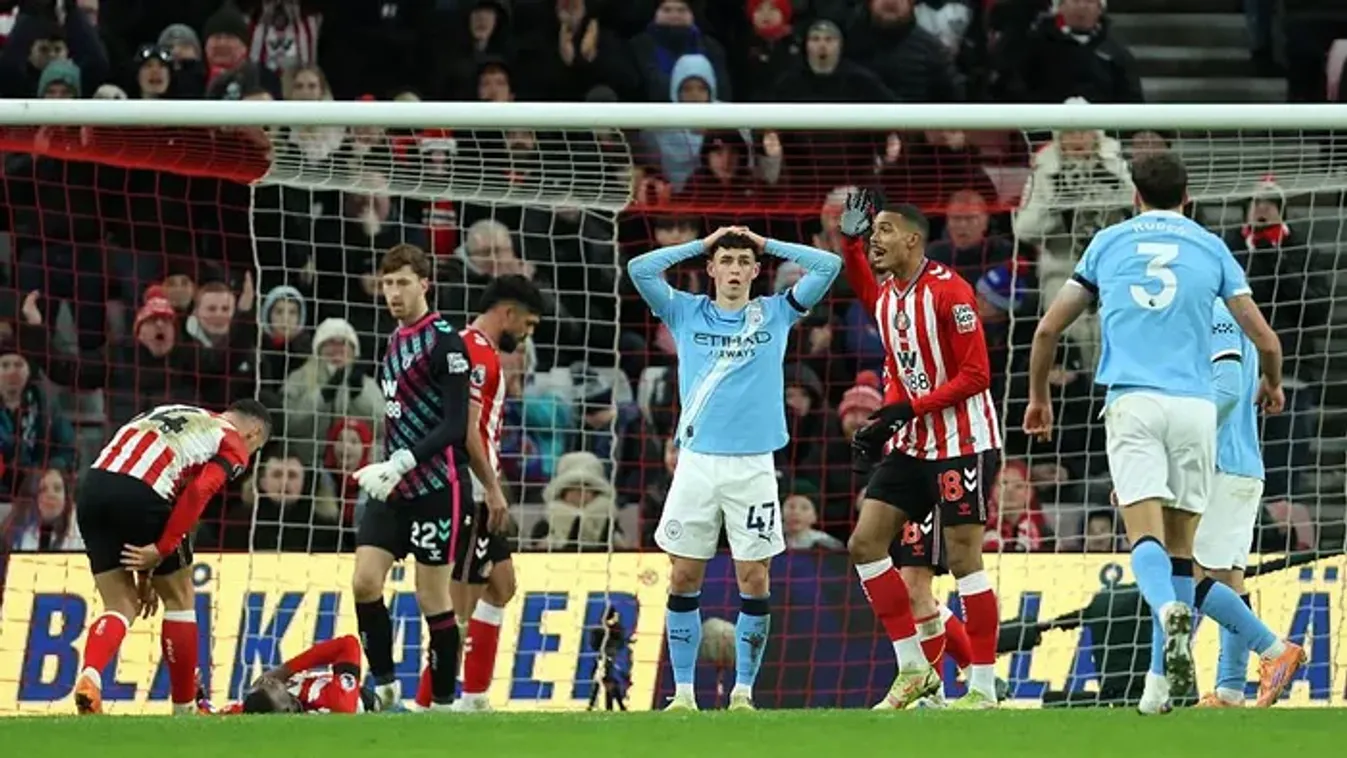Thanks to László Feleki’s local commentary, it is easy to evoke Ferenc Puskás’s most important movements in London:
8 minutes: Puskás sends the ball to goal after Zakariás’s pass, Merrick dived to stop the ball entering his goal.
12 minutes: Puskás ran forward on the left side, Hidegkuti was following him from 2 metres, then he kick the ball into the net from eight metres after Puskás’s pass. The referee made a wrong decision when he invalidated the goal.
22 minutes: Czibor ran forward on the side, and after his pass, Puskás could have shot, but Wright disturbed him, so the captain kicked the ball aside, which was shot by Hidegkuti under the post from the penalty area. (1:2)
25 minutes: Czibor was running quickly on the left side, then after his right-foot pass the ball came before Puskás. He reached the ball around line ‘six’, then having dragged the ball back, he dribbled Wright, then shot the ball over Merrick to the left corner. (1:3)
29 minutes: Bozsik got a free-kick 29 metres from the English goal, which was passed to Puskás’s left foot having stood 12 metres from the goal, who shot it beside Merrick down to the right corner of the net. (1:4)
50 minutes: the English clearing kick was caught by Puskás, who kicked it back to Bozsik, who kicked it from 25 metres in an excellent way, so he scored it into the right side of the goal under the post. (2:5)
53 minutes: Puskás passed the ball over from the left side of line ‘sixteen’ to the right side, and Hidegkuti, who was standing on a good place, made a flying kick from 12 metres, and scored down to the left corner. (2:6)
62 minutes: Puskás’s thumping shot went aside.
70 minutes: Nice teamwork between Puskás and Kocsis, after which Puskás shot aside.
78 minutes: Puskás’s wonderful shot went to the side of net.
Fifty-three years has passed since the Hungarian national football team scored its most famous victory. We commemorate the wonderful 6:3 success in London. We show you what Puskás’s days were like in England, we report about the match, and we analyse why the Golden Team could exceed the whole world. Though, the team lost the 1954 World Cup final, nevertheless, we will always remember them as the team beating the whole world.


Puskás from minute to minute
The funny discussion of the two friends before the free-kick
On ‘half-way’ in Billancourt, according to the reports, Bozsik and the team played in a relaxed and motivated way against the local football team. As being a sparring football match, they could even make jokes: for example, Gyula Mándi warned those photographers who dared to go close to the Hungarian team during the warm-up to take care because a Puskás shot going aside can do harm in them. Of course, to this the photographers could react immediately asking, ‘ Monsieur Mándi, why was it that the last shot by Puskás went aside?’. But putting joking aside: while on behalf of the locals it was Dumas who wrote himself into the history books, player number ten of the Hungarian team scored five goals from the eighteen. It is not a surprise that those who read the issue of 22nd November of Népsport could see the following headline: ‘Puskás played very well with great spirit.’
He played almost as well and with such a great spirit as in London.
But we still wasn’t there in England. During the journey, the players read the motivating letters they got from Hungary. Although, János Kádas, iron turner gave advice rather than encouraged the players: ‘The penalty shot must be shot by Lantos and not by Puskás. The reason for this is that Puskás shoots the penalty shot very well, he only shoots aside, when it is needed the most the shoot to be shot in. I think Puskás has a lot to do as the captain of the team, and he can’t concentrate enough…’.
English newspapers wrote in a much more coaxingly way about the forward before the match. The Daily Mirror, for example, described him as follows: ‘He leads the Hungarians. He is the inside left, the captain and according to many people, the number one football player of the world. It can be questioned in favour of Matthews or Finney, but Puskás, of age 26 only, was the member of the national team more than fifty times, and he is an excellent presenter of this game.’
Well, what he presented on 25th November, would have been a reason for applauding him back ten times on the stage of Globe.
Referring the antecedents once more, we have to mention that on the tactical meeting, Gusztáv Sebes, not caring with the opinion of comrade Kádas, decided Puskás to do the penalty shot, although he requested at the same time that if the team got a free-kick against the opponents near the goal, it wouldn’t be always Öcsi who made the shot, but giving the opportunity to Bozsik as well. The two friends replied to this immediately. Bozsik said that he would shoot the ball to the goal with pleasure, but Puskás always kicked the ball from him. Puskás answer was that he would wait for Bozsik with pleasure, but by the time he gets to the goal, the opponents are already there and get into their places without a hurry… In spite of this, the Hungarian team while overriding the opponent team, scored a goal in the 29th minute in the following way: after the 29-metre free-kick of Bozsik, Puskás got the ball, which was in the right back of Merrick’s net a few minutes later…
Regretting because of the missed opportunities for scoring a goal
As it is impossible to tell anything new about the football match of the decade after 53 years as well (and, of course, it isn’t needed, because we can tell with a smile on our face year after year: 4:2 after the first half and the end result was 6:3…). Instead of it, let’s talk about ‘the Galloping Major’. While the English marked his performance with the ‘amazing’ marker, in Népsport he was praised even more: ‘He, as the most famous person among the Hungarian forwards, had a very difficult job on this football match. The English paid a great attention to him, first of all with the fact that he was tried to prevent from scoring by the best English player, Wright, and also another English central defender looked out of him as well. Nevertheless, it didn’t hinder Puskás from being the most excellent and efficient member of the Hungarian team on the pitch. He moved a lot, and started a lot of marvellous attacks towards the opponents’ goal, but he was there at the endings, too. He was again that Puskás who reached the appreciation of the best football experts of the world through those difficult international matches he played.’
Although, there was no ranking among the players being on the pitch those days, according to the present ranking he would get definitely 10 points out of ten. The excellent player, who scored two goals and gave three goal pass, spoke modestly after the game: ‘I’m extremely happy. We did everything we could, so we could win over the English team, which couldn’t be beaten so far, in their home.’ Next day, he gave a longer evaluation as well, when it turned out that the soft, flowing ground made Puskás and Czibor physically so worn out that their feet were seized with a cramp towards the end of the game.
‘This forward play built on a lot of movements, quick position and place exchanging is the style of the present but that of the future, too. We have to try everything to improve in it later. We feel very happy after the game, first of all because we tried to imagine what the people could feel in Hungary. We are glad not to disappoint those who trusted in us. Sometimes, before the game, we felt like this confidence may be too much, but it seems that they were right.’, acknowledged Ferenc Puskás that there were people who were more optimistic Hungarians than them before the match, and he also told that after 3:1 he suspected that they would win this football match of great importance. Beside his hurting leg, he also lamented over the missed goals, ‘…but we shouldn’t complain…’.
We have great regard for the greatest forward.
It sounded well as well, but the palm was won by Tom Finney, who couldn’t play on this match because he was injured, one of the most famous English forwards. He said in one of the articles of Daily Mirror published on 27th November the following: ‘Puskás is the greatest inner forward of the continent. He is quick, an excellent shooter and a great mind.’
What can be added to this? Perhaps only the fact that News Chronicle, which also acknowledged the Hungarian team and its captain, published a picture about Puskás and his daughter. The text under the picture quotes the father who tells a fairy tale to his child: ‘Once upon a time, there was national football team and its name was England…’
Thanks to Puskás and his teammates, the whole world knows today, of course, that it was not a fairy tale.
Legfrissebb hírek
Ezek is érdekelhetik





